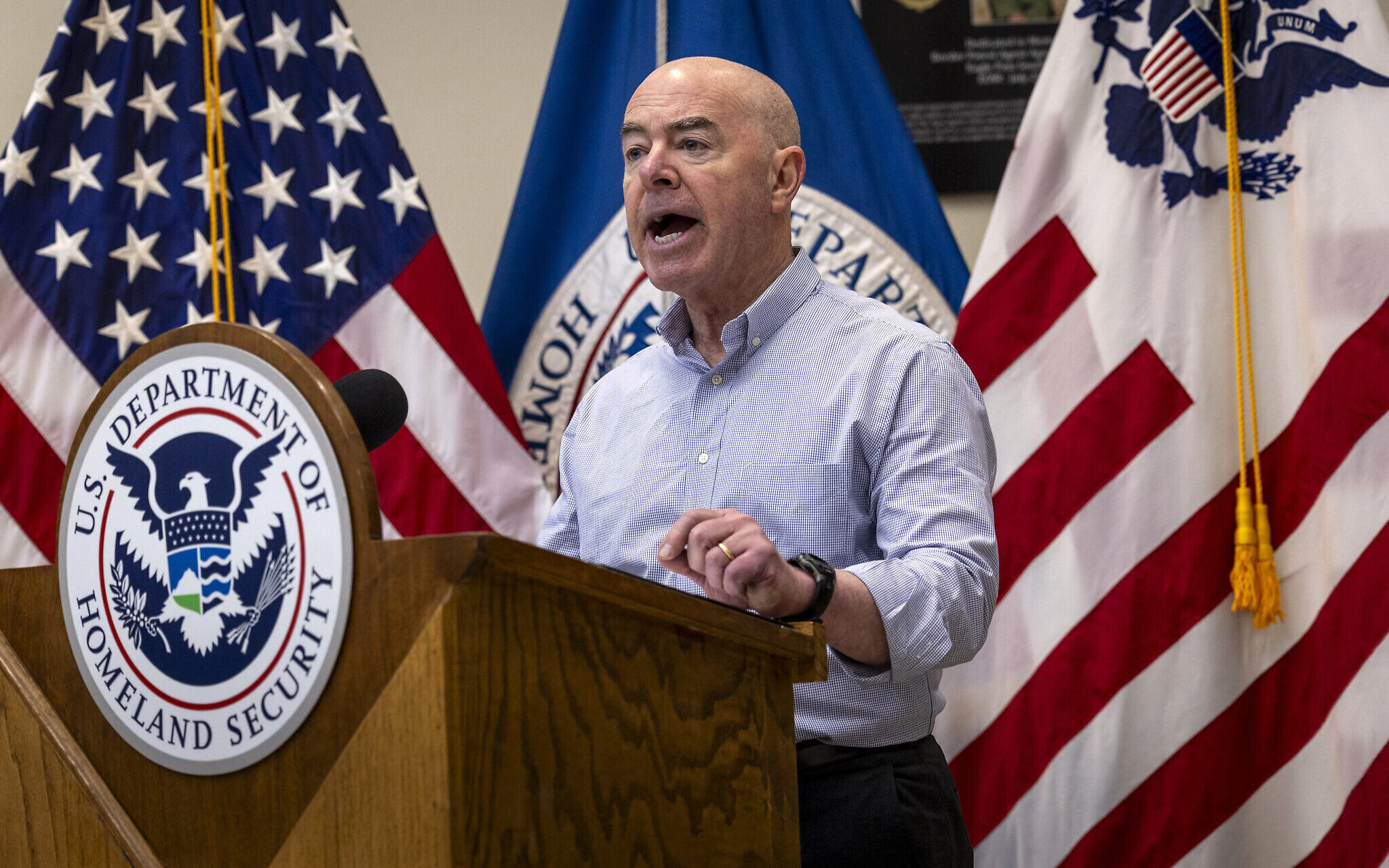The impeachment of Homeland Security Secretary Alejandro Mayorkas marks a remarkable moment in U.S. political history, spotlighting the intense debate over immigration policy and border security.
On February 13, the House, led by Speaker Mike Johnson, R-La., voted to impeach Mayorkas, citing his handling of the migrant crisis at the southern border.
This action placed Mayorkas as the first Cabinet secretary to face impeachment in nearly 150 years, underlining the gravity of the current political divisions over immigration. The articles of impeachment are set to be delivered to the Senate, propelling the issue into a new phase.

Mayorkas (Credits: The Dallas Morning News)
However, based on insights from Senate aides, the expectation is a swift dismissal of the charges against Mayorkas. Senate Majority Leader Chuck Schumer, D-N.Y., is anticipated to expedite a motion to dismiss or table the charges, underscoring the partisan lines that define the impeachment proceedings.
The procedural dynamics within the Senate reveal the strategic considerations at play. Schumer’s options include a floor vote to dismiss the charges or to relegate them to a special committee, potentially deferring a resolution until after the upcoming general election. The decision rests on a simple majority vote, with Democrats holding a slight edge in the Senate.
Critics of the impeachment, including Schumer, argue that the effort lacks a substantial basis, highlighting the constitutional threshold for high crimes and misdemeanors.

Mayorkas (Credits: The Times Of Israel)
President Joe Biden echoes this stance, defending Mayorkas as a dedicated public servant and critiquing the impeachment as an act of partisanship disconnected from genuine border security concerns.
This revealing scenario illustrates the complication of directing immigration policy within the framework of U.S. politics. The impeachment process reflects the legal and constitutional mechanisms at play and the broader ideological and partisan battles that shape the discourse on national security and immigration.
As the Senate prepares to address the articles of impeachment, the outcomes will further delineate the contours of political accountability and the governance of immigration policy despite deepening divisions.























